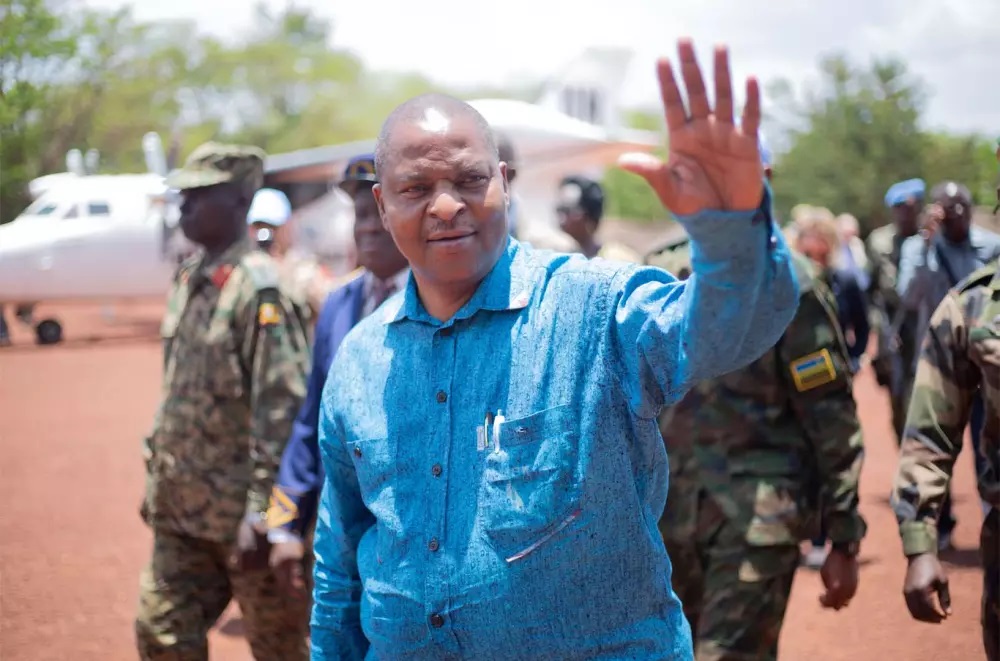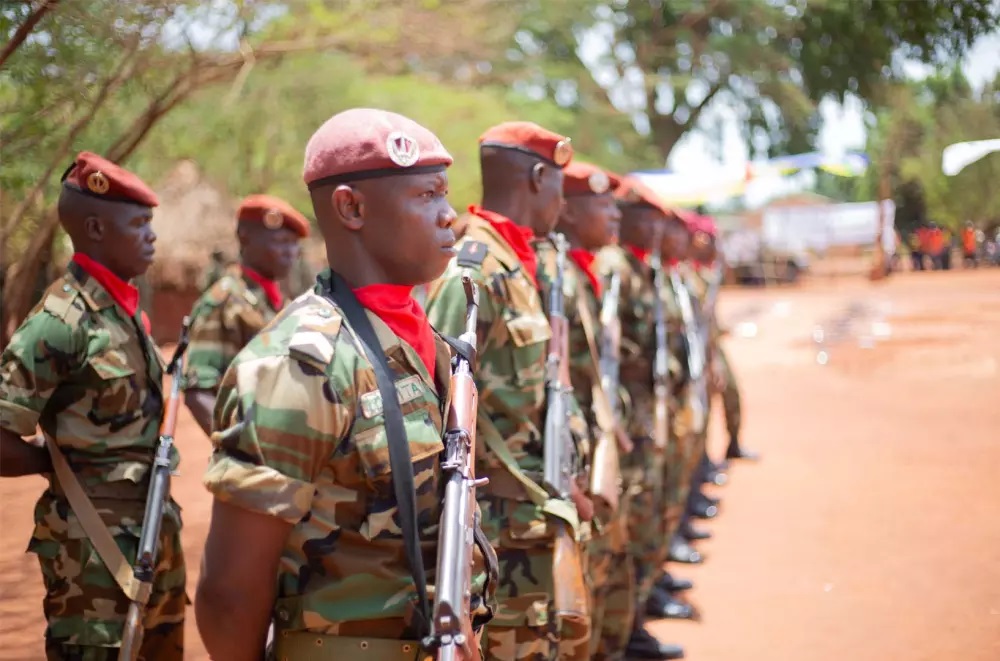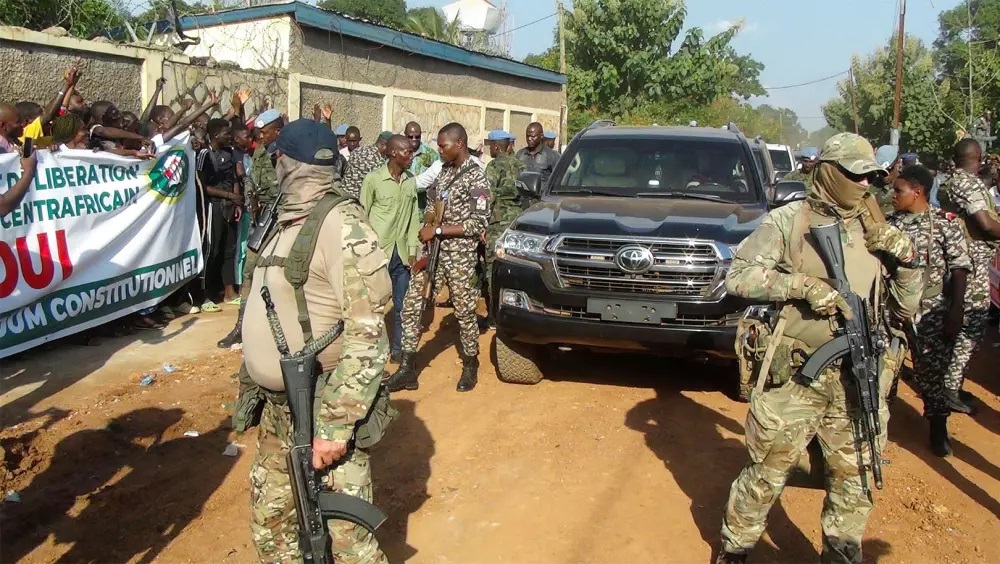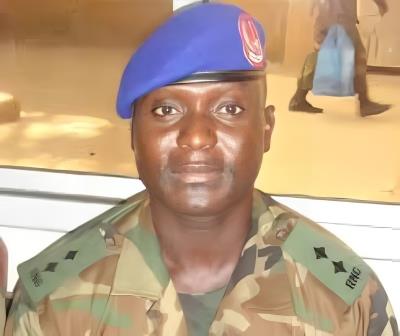The crisis in the Central African Republic (CAR) has been overlooked for years. A landlocked country in the heart of central west Africa, CAR continues to pay the price of a long-standing conflict, and one in five Central Africans remains displaced.
Since gaining independence in 1960, CAR has experienced decades of violence and instability, including six coups. Despite repeated efforts to attain peace and disarmament, an insurgency led by Seleka forces—a coalition of armed, primarily Muslim groups—seized the capital of Bangui and ousted the government of François Bozizé in 2013. In response to brutality by Seleka forces, “anti-balaka” coalitions of Christian fighters formed to launch violent attacks on Seleka fighters and Muslim civilians, provoking a renewed conflict that has killed and displaced thousands.

President-Touadera-greets-crowds-in-the-southeastern-town-of-Obo-during-a-visit.-Rights-groups-say-his-leadership-has-grown-increasingly-authoritarian-in-recent-years.-Credit-tnh.org_.jpg
Despite seven attempts at peace agreements between the government and non-state armed groups since 2012, Seleka and anti-balaka militias have only increased their activity and influence across the country, terrorizing civilians and clashing over control of mineral resources and migration routes. Due to the scale of the crisis, the UN Security Council established a peacekeeping force in April 2014 that incorporated African Union and French forces that had previously deployed to CAR.
The conflict in the Central African Republic (CAR) has changed significantly ever since CAR aligned itself with Russia and cut off ties with the French and the West. Over the past two years the government and its Russian mercenary allies have pushed rebel groups out of major towns and taken control of large parts of the country.
Though armed groups are still active, especially in border areas, and political tensions are rising after the approval of a new constitution that removed presidential term limits, allowing President Faustin-Archange Touadéra to extend his stay in power.
This year marks a decade since a full-scale civil war erupted in CAR. The conflict saw the Séléka – a mostly Muslim rebel alliance – oust then-president François Bozizé, who responded by mobilizing mostly Christian self-defense groups known as anti-balaka.
Interventions by the Wagner Group and Rwanda since 2021 have helped Touadéra push back the rebels. But a full victory has proved elusive, and the Wagner partnership has sparked geopolitical tension and led to an array of human rights abuses.
CAR currently has some of the world’s highest levels of humanitarian need: Half of its population lacks food, nearly 8% of newborns do not survive their first year, and around one in five people are displaced.
While those high numbers are linked to recent conflict, the crisis has deeper roots: For over 200 years, CAR has been the site of migration and displacement linked to slave raiding by sultanates to the north, and to France’s brutal colonial system.
Half of the population perished during the colonial period, and France meddled repeatedly in CAR’s politics after independence. Though a state was constructed, it was centralized in Bangui and focused on extractive wealth creation for an elite few.

Central African soldiers stand guard during a visit by President Touadéra to the southeastern town of Obo. Credit-Reuters
CAR’s army had long struggled to face rebel groups, but the arrival of Wagner and Rwandan bilateral forces have strengthened its hand, pushing rebel groups out of provincial towns for the first time in at least a decade.
Though aid workers still face difficulties reaching remote areas with armed groups and soldiers, the return of government control has eased humanitarian access to populations in town centers.
Access to basic services, particularly healthcare and drinking water, remains limited in the rural areas. A decade of conflict has hampered the development of public services, including critical infrastructure such as hospitals, schools and transport. The few paved roads that connect the country are not enough to reach remote regions, which are sometimes plagued by insecurity.
The rainy season affects trade and mobility, since most of the roads are unpaved tracks. Accidents involving improvised explosive devices (IEDs), such as roadside bombs, are on the rise. Between January and June 2024, 14 people, including seven civilians, were killed in 33 incidents involving IEDs. Civilians tend to be the main victims of these booby-trapped devices.
With half of CAR’s population under the age of 18, armed conflict and population displacement are having a devastating effect on children’s schooling. It is estimated that seven out of ten children do not attend school regularly, and around 1.2 million children are facing difficulties accessing education.
Financial constraints combined with insecurity are forcing children to drop out of school. Families struggling to meet basic needs find it impossible to pay for school supplies and uniforms. And when children are not in school, they are exposed to protection risks, including recruitment by armed groups, and being forced into child labour or child marriage.

Wagner Group mercenaries protect President Faustin-Archange Touadéra at a rally. The group has helped the government beat back rebels in recent years, but humanitarian needs remain high. Credit-BBC
A lot of school infrastructure has been destroyed, and qualified teachers are abandoning their posts in search of safety and a secure income, especially in remote areas. In basic primary 1, there is an average of 120 pupils for every tenured teacher.
To make up for this shortage, a system of maîtres-parents (parent teachers) has developed, whereby parents are appointed by the community to teach children in return for a meagre allowance. Maîtres-parents account for 65 per cent of the teaching force. Having received little to no training and an inadequate income, they often give up their teaching roles within the year.
Despite less rebel violence, armed groups are far from defeated. Rebels continue to pose “difficulties” and “make and drop alliances to suit their immediate interests.
CAR still faces a humanitarian crisis. In addition to the over one million displaced by violence, an estimated 5.6 percent of the population died in 2022, a rate twice as high as any other country. In June 2023, 3.4 million people needed assistance, worsened by flooding that affected more than 100,000 people.
Despite severe needs and deteriorating conditions, humanitarian donors are turning away from the Central African crisis, while funding for development has not increased. In 2023, only 59 per cent of the funds required by the humanitarian response plan were received – USD 296.7 million out of the required USD 533.3 million.
Media coverage and political commitment to resolve the crisis in CAR are negligible, low-profile, and among the lowest of the ten most neglected crises in the world identified by analysts in 2023.
Right now, lasting peace in the Central African Republic is nothing but a mirage.






